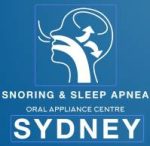Explore the multifaceted nature of sleep apnea as we uncover additional factors that contribute to the development of this disruptive sleep disorder.
1. **Airway Structure and Genetics:**
– Inherent anatomical features, such as a naturally narrow airway, can increase susceptibility.
– Genetic factors may influence the shape and size of air passages.
2. **Hormonal Changes:**
– Hormonal fluctuations, as seen in disorders like polycystic ovary syndrome (PCOS), can contribute to sleep apnea.
– Changes in hormone levels affect respiratory control.
3. **Nasal Congestion and Respiratory Conditions:**
– Chronic nasal congestion and respiratory issues like allergies can obstruct airflow.
– Treating these conditions may improve sleep apnea symptoms.
4. **Positional Factors:**
– Sleeping position can impact the severity of sleep apnea.
– Sleeping on the back may worsen symptoms by causing the tongue and soft palate to collapse backward.
5. **Chronic Use of Pain Medications:**
– Long-term use of opioid-based pain medications can depress the respiratory system.
– This can contribute to or exacerbate sleep apnea.
6. **Acromegaly:**
– A rare hormonal disorder causing the enlargement of body tissues, including the tongue and soft palate.
– Enlarged tissues can contribute to airway obstruction during sleep.
7. **High Altitude:**
– Living at high altitudes where oxygen levels are lower may increase the risk.
– The body compensates for lower oxygen by altering breathing patterns, potentially leading to sleep apnea.
8. **Stroke and Brain Injury:**
– Damage to the brainstem, responsible for controlling breathing, can result in sleep apnea.
– Individuals who have suffered a stroke or brain injury may be at an increased risk.
9. **Down Syndrome:**
– Individuals with Down syndrome often have anatomical differences, such as a smaller airway.
– This increases the likelihood of developing sleep apnea.
10. **Smoking and Secondhand Smoke:**
– Besides direct effects on the airway, exposure to secondhand smoke can contribute to inflammation.
– Smoking cessation is crucial for managing and preventing sleep apnea.
Conclusion:
The causes of sleep apnea are diverse and interconnected, requiring a comprehensive understanding for effective management. Identifying and addressing these additional factors, alongside traditional causes, can contribute to a more nuanced and tailored approach to tackling sleep apnea. If you suspect sleep apnea, seek professional guidance for a thorough evaluation and personalized treatment plan.

